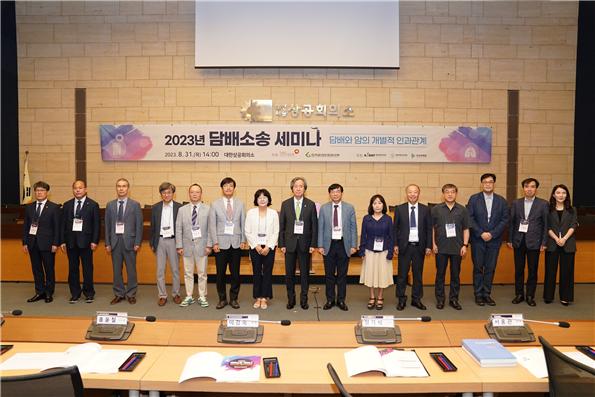
The National Health Insurance Service (NHIS), which has been in a legal battle against tobacco companies for damage compensation worth 53.3 billion won ($40.4 million) for nine years, draws renewed attention by presenting results that prove the causal link between smoking and cancer.
In 2014, NHIS filed a lawsuit against Philip Morris Korea, British American Tobacco (BAT) Korea, and KT&G, seeking damages worth 53.3 billion won. The lawsuit seeks compensation for medical expenses paid by the NHIS for 10 years to 3,465 patients diagnosed with squamous cell lung cancer, recognized as causally related to smoking.
However, the NHIS lost the first trial in November 2020.
NHIS claimed the tobacco companies did not design their products to reduce risks in the manufacturing process and did not sufficiently warn about the risks of tobacco. However, the tribunal did not recognize its argument.
“It cannot be excluded that the disease may have been caused by factors other than smoking, including lifestyle, genetics, surrounding environment, and occupational characteristics of each litigant," the tribunal said, dismissing the state insurer’s claims.
The NHIS immediately appealed, progressing to the seventh hearing this past January. The date for the eighth round of arguments has yet to be set.
Against this backdrop, the NHIS revealed the results of an in-depth investigation of 30 patients diagnosed with laryngeal and lung cancer who smoked one pack of cigarettes per day for more than 20 years at the 2023 Tobacco Litigation Seminar on Thursday.
Professor Lee Kang-sook, chairperson of the Korean Anti-Tobacco Movement and a professor at the Catholic University of Korea School of Preventive Medicine, presented the results of the In-depth Investigation of Smoking History of Lung and Laryngeal Cancer Patients, claiming the study confirmed the causal relationship between smoking and cancer in some of the subjects who were heavy smokers.
In-depth interviews showed that 15 smokers started smoking in their 20s, 14 in their teens, and one in their 30s. Nine had a family history of smoking, and none had possible occupational exposure to tobacco. They reported a lack of information about the tobacco epidemic, addiction, or cessation education when they started smoking. Addiction and withdrawal were cited by 63 percent as reasons for difficulty quitting.
"It is recognized that smoking and cancers related to tobacco litigation are highly specific, and it is time for a just tribunal that does not turn a blind eye to this truth," Professor Lee said.
Ji Sun-ha, a professor at Yonsei University School of Public Health and one of the panelists at the seminar, also pointed out that smokers' contribution to lung cancer is high, accounting for more than 97.8 percent of small cell lung cancer and 95.9 percent of squamous cell carcinoma.
"The causality of lung cancer in tobacco litigants should not be denied," Professor Ji said. "I hope this study will be published in a paper and accurate epidemiological data will be submitted to help in future litigation."
The NHIS vowed to hold tobacco companies accountable in the appeals trial by proving the harm caused to individual patients by smoking.
"The causal relationship between smoking and the development of diseases, such as lung cancer, and the addictive nature of cigarettes is a 'fact' tobacco companies cannot deny," NHIS President Jung Ki-suck said. "Nevertheless, the first trial loss is very unfortunate if we look at its results only. The trial court did not recognize the causal relationship, even though the case was about a highly correlated cancer type with smoking."
Jung vowed that his agency would thoroughly prepare for the appeals trial. As a party that manufactures and sells harmful substances, he emphasized that tobacco companies must be strictly judged on whether they have fulfilled their duty as a manufacturer to the public's safety.
"The crucial issue to win the fight is the causal relationship between smoking, lung cancer, and other diseases," Jung said. "In the appeal, we will press the tribunal to judge the 3,465 people with the right criteria."
To prove this, the NHIS will secure in-depth analysis data on each person, objective evidence, and opinion letters from experts in each field, he added.

